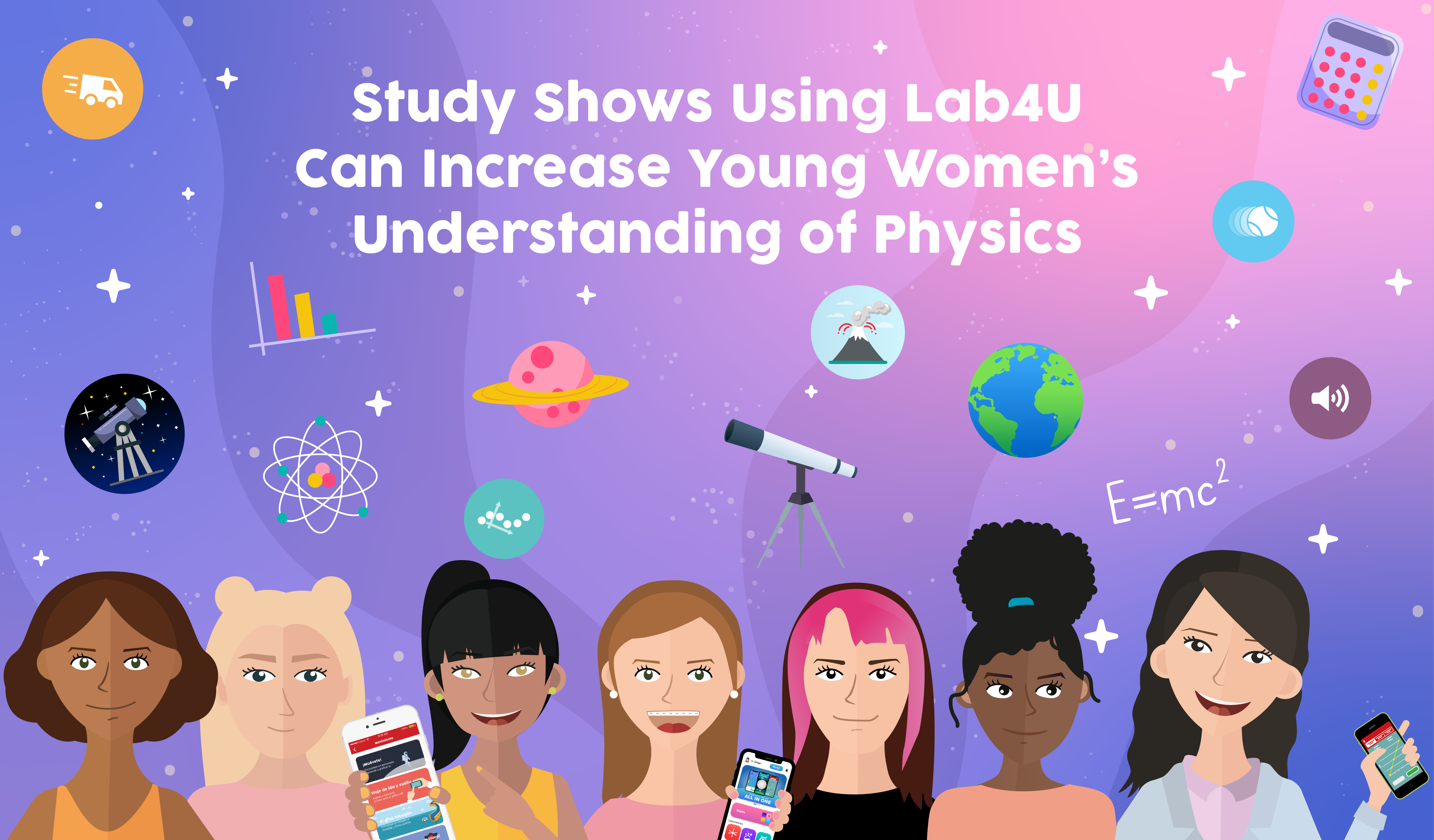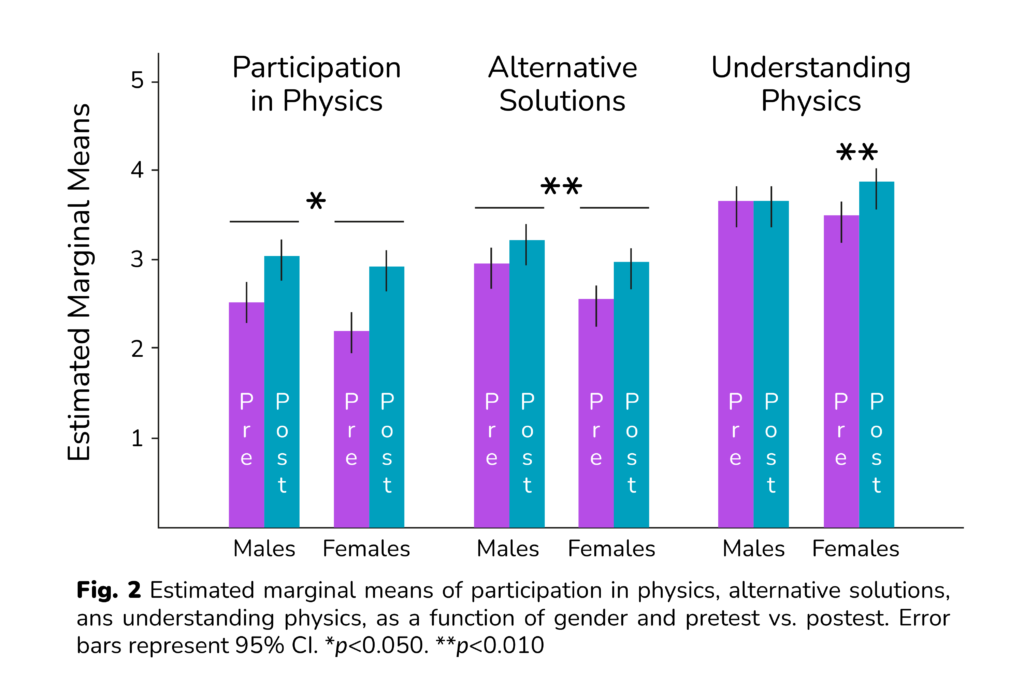
Study Shows Using Lab4U Can Increase Young Women’s Understanding of Physics
By Lab4U Team
The platform also increased interest in physics for both male and female students
This is a brief summary of a research article published in the “International Journal of Science and Mathematics Education” on October 14, 2021.
At Lab4U, we’re on a mission to not only change how, but who, is thriving in STEM education. Historically, boys have shown a higher interest and confidence in studying STEM subjects than girls; decades on, this preference affects who enters the workforce most prepared to take on certain jobs and opportunities. As a result, industries like engineering and computer science suffer from an underrepresentation of women in the field.
One way we’re working to change that is to get girls more interested in STEM disciplines at an earlier age—and we’re having a positive effect. In a 2021 study titled “Interest in Physics After Experimental Activities with a Mobile Application: Gender Differences,” researchers observed that, after using Lab4Physics to conduct experiments, both male and female students self-reported a higher interest in physics, plus girls self-reported an increase in their understanding of physics.
The study followed 268 students, 43% male and 57% female, from eight schools across six regions of Chile as they interacted with Lab4Physics, undertook various experiments, and answered multiple choice questions on graph comprehension over the course of seven months. Students also completed both a “pretest” and “posttest,” from which the study’s conclusions were drawn.
The study evaluated three hypotheses: after using Lab4Physics, participants will show an increased interest in physics; the effect of the change will be larger for girls than boys; and participants will show a higher level of understanding graphs.
Ultimately, the first two hypotheses held strong. Testing across seven variables ranging from interest in science classes to enjoyment and understanding of physics, the study observed a significant increase in self-reported interest in physics from both male and female students.
In addition, an increase was observed for girls, but not boys, in understanding physics—revealing that Lab4U’s platform is effective at helping new generations of female students engage with STEM topics.

For more details on this graph, see: https://link.springer.com/article/10.1007/s10763-021-10228-4
In the end, there was no significant change to graph comprehension, based on the results of the multiple-choice questions. Still, the study concludes that “by being provided with challenging mobile inquiry activities aided by guided instruction, students could increase their interest in the topics covered in these activities. Also, this rise in interest could be more evident in female students.”
This study is just one example of how transformative Lab4U’s platform can be for young people when used in tech-embracing educational settings and complemented with guided instruction. For the full study, visit here.




